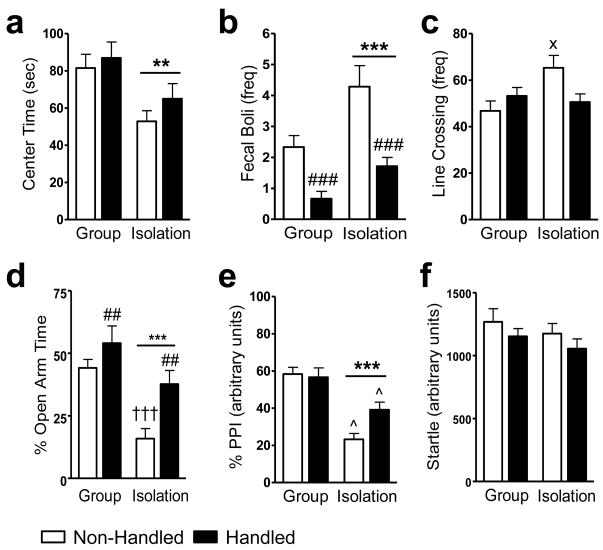Figure 1.
Social isolation alters behavioral responsiveness to context in the (a - c) open field, (d) elevated plus maze and (e) prepulse inhibition test without altering (f) acoustic startle amplitude. Handling altered behavioral responsiveness to context in the (b) open field and (d) elevated plus maze in a manner opposite to that of isolates. Isolates deprived of handling exhibit hyperlocomotor activity measured by (c) line crossings in the open field and a decreased time spent in the (d) open arms of the elevated plus maze compared to group-reared rats; these differences were not present in isolates subjected to handling. Socially-isolated rats that were handled showed a lessened deficit in (e) % PPI compared to their non-handled counterparts, but were less able to inhibit responding to a prepulse compared to group-reared rats. Data are mean ± S.E.M. ***P < 0.001, **P < 0.01 vs. Group Reared (ANOVA); ###P < 0.001, ##P < 0.01 vs. Non-handled (ANOVA); xP < 0.05 vs. Group Reared/Non-Handled (ANOVA, Tukey post hoc); †††P < 0.001 vs. Group Reared/Non-Handled (t-test, two-tailed); ^P < 0.05 vs. all other groups (ANOVA, Tukey post hoc).

